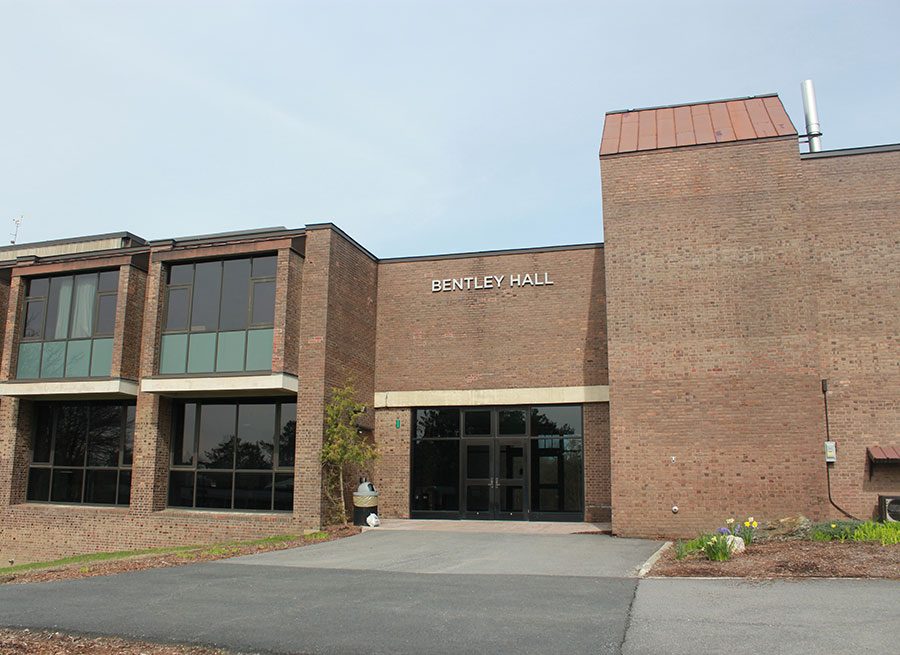Environmental, Health Sciences Dept to change direction
The NVU-Johnson Environmental and Health Sciences department is quickly losing professors left and right. Dr. Bob Genter retired after the 2018 Fall semester, followed by Professors Karen Uhlendorf and Susan Green. Prof. Amy Welch is resigning at the end of the spring semester, and Tania Bacchus will be retiring after the coming fall term.
At any thriving liberal arts institution, a strong science department is key. This sudden departure of WAM, biology, and health science professors begs the question: where is the department headed?
Les Kanat, professor of Health and Environmental Sciences, said, “The sciences are not over at this college. We’re just going to refocus.”
With an incredibly strong background, the department has a solid jumping-off point. The START (Student Transition, Achievement, Retention and Teaching) scholarship program, which ended this summer, funded by the National Science Foundation, was a huge success at NVU-Johnson over its six-year runtime. This scholarship program for Environmental Science students helped many graduate on-time and without debt.
Kanat has applied for a new grant, known as FINISH, which will again support students in similar ways. Kanat noted that he believes the administration fully supports the grant request, suggesting that they also see a future for the sciences at NVU-Johnson.
There are new hires in the department that will jumpstart this refocus. Dr. Emily Tarleton, PhD, RD, CD, has been hired as a long-term, full-time professor in Health Sciences. Tartleton is most well-known for her work on magnesium and its effects on depression in adults.
Lisa Zinn, currently a part-time faculty member of the Environmental and Health Sciences program, has been hired as an interim, 1-year full-time Biology professor. Prior to next year, the department will launch two searches for biologists, both organismal and molecular.
The same is true for the Wellness and Alternative Medicine program, maintained and backed by one professor, Susan Green, whose retirement has opened a new conversation about the future of WAM. The major will undergo a name change, and be adopted into the sciences at Johnson. With more evidence-based coursework, “Complementary and Integrative Health Sciences” majors will get a more comprehensive degree. The search for a new faculty member is already underway.
Along with the two searches for biologists and one for the WAM-turned-CIHS program, the department is hoping to find a “visiting” interim 1-year faculty member in the Outdoor Education program. Karen Uhlendorf has been at Johnson for 29 years and will be retiring after the semester is over. Her retirement marks a turning point in the Outdoor Education major, as she was one of only two coordinating professors.
In the coming years, the Environmental and Health Sciences department is going to undergo several changes, and both the faculty and administration are working towards that goal, albeit a bit disjointedly. “We know what we want,” said Kanat, “but we don’t decide.”
After Genter retired in the fall, the faculty requested a search for a new biologist. The search was only just approved a few weeks ago, according to NVU Provost Nolan Atkins.
Professor Liz Dolci, currently on sabbatical in Jeffersonville, will assume the position of department chair after Welch’s departure.
“We were on a trajectory a few years ago, pushing faculty mentoring,” Dolci said. “We’re at a point now where we can see what we’ve lost.”
“I would like to see us develop and sustain a culture of faculty-mentored undergrad research,” she said. She noted, though maybe unrealistic, that she would love to offer each and every science major some kind of paid internship during the summer.
“It’s engaging students in the process of science,” she said.
Acknowledging all that the part-time faculty offer to the students, she lamented that without the core of full-time faculty, each professor would have to take on more advisees. “Our part time faculty don’t have time for advising. Grading written papers takes long enough.”
Traditionally, professors would take on small teams of advisees and coach them through a long-term project. “Bob [Genter] would take five students, Tania [Bacchus] two or three and I’d have three,” said Dolci.
“And really,” she said, “the bottom line is the students. They deserve the best quality education we can provide both in faculty and in mentoring.”
Both Dolci and Kanat said that they’d like to see Biological Health Sciences as part of the future of the department, noting Tarleton’s excellence in the field. This sentiment was echoed by Atkins, who agreed that the health sciences are, “a robust, growing industry. There is a great demand for jobs with a strong biology background.”
“We’ve been speaking with the faculty to really ask the question, ‘Where do we want to go,’” said Atkins. “We need to think about the vision, but the hope is to initiate tenure track searches in the fall.”
Wherever the administration decides to take the program, Dolci is hopeful. “We’re passionate about our research,” she says. “It’s a part of us. It’s not just a job. These research experiences are so valuable.”

Senior, Journalism & Creative Writing
Grew up in Atkinson, NH
Fall 2018
Along with traditional journalism, I enjoy writing satire and fun feature...



